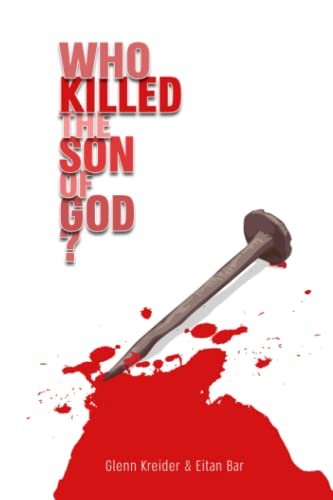Who Killed the Son of God?
In Defense of Penal Substitution without Divine Murder
Glenn R. Kreider; Eitan Bar
BOOK REVIEW

The title alone, Who Killed the Son of God? resonates with the weight of centuries of theological debate, igniting both curiosity and controversy. This provocative examination by Glenn R. Kreider and Eitan Bar dives into the heart of one of Christianity's most enduring questions: the nature of Christ's sacrifice and the implications of penal substitution theology. By articulating a defense of this doctrine without invoking the notion of divine murder, Kreider and Bar beckon us into a labyrinth of belief, ethics, and historical interpretation.
At its core, this book is an invitation to interrogate the very fabric of Christian theology. As you embark on this intellectual journey, the text confronts the reader with challenges to preconceived notions about God, justice, and the very essence of sacrifice. Is the idea of a deity requiring a blood offering truly essential to redemption, or does it mischaracterize divine love? Such queries are not mere academic exercises; they resonate deeply within the soul, nudging one towards a reflection on the paths of faith one chooses to walk.
Kreider and Bar, using a blend of rigorous theological analysis and accessible language, endeavor to dismantle misunderstandings surrounding penal substitution. They delve into the historical roots of the doctrine, illuminating how it has evolved over centuries, shaped by cultural contexts that often elude modern interpretations. The authors' goal is not only scholarly; it's an urgent call to re-evaluate how we present and understand Jesus' crucifixion-a moment that is said to have transcended the bounds of time and space, yet remains shrouded in contradictions.
This book is not merely about theology; it is a rich tapestry interwoven with philosophical inquiry and spiritual introspection. One can't help but feel the emotional weight of each discussion. For countless believers, the narrative of Christ's death is tied intricately to their understanding of justice and mercy. Kreider and Bar challenge the reader to confront, and possibly even redefine, how we reconcile suffering with divine love. Are we to accept a God who demands sacrifice, or can we envision a deity who embodies love and grace above all else?
Public reception of Who Killed the Son of God? has sparked fervent discussions among theologians, pastoral leaders, and lay readers alike. Some embrace its challenge to traditional views, praising its intellectual rigor and heartfelt exploration of complex themes. Critics, however, argue that the authors may underestimate the emotional impact of crucifixion narratives on faith communities. They express concern that the book's interpretations could lead to confusion or disillusionment among those accustomed to specific doctrines.
Yet, within this tension lies an opportunity for growth. Just as the early church wrestled with doctrinal disputes in their quest for truth, Kreider and Bar represent a modern iteration of that struggle. Their text is equally an invitation to wrestle, to question, and ultimately, to seek deeper insights into the implications of Jesus' suffering and resurrection, urging us to emerge from the depths of doubt with a richer understanding of love.
The implications of Who Killed the Son of God? extend beyond individual belief systems; they call for a collective reckoning. In a world rife with injustice and suffering, how does one reconcile divine love with the pain that permeates our existence? This question resonates with urgency in today's society, where narratives surrounding faith and morality are often at odds with lived experiences.
The authors deftly navigate the labyrinth of historical interpretations and theological debates, sparking curiosity and igniting hope for a broader dialogue on the nature of redemption. Readers will feel the weight of history as they explore how the implications of penal substitution influence contemporary theological thought and congregational practice.
Ultimately, this book is a clarion call to embrace a path of enlightenment. Kreider and Bar invite you to confront your beliefs, sparking not just debate but genuine transformation. As you turn the pages of this compelling work, prepare to engage your heart and mind-there is much at stake in the discourse of faith and the very narrative of who God is.
So, are you ready to unpack the layers of meaning? Who Killed the Son of God? is not just a book-it's a transformative journey into the depths of theology that could shift paradigms and inspire contemplation long after you've laid it down. ✨️ Let this read be a catalyst in your quest for understanding, reflection, and spiritual growth!
📖 Who Killed the Son of God?: In Defense of Penal Substitution without Divine Murder
✍ by Glenn R. Kreider; Eitan Bar
🧾 100 pages
2020
#killed #god #defense #penal #substitution #without #divine #murder #glenn #kreider #GlennRKreider #eitan #EitanBar